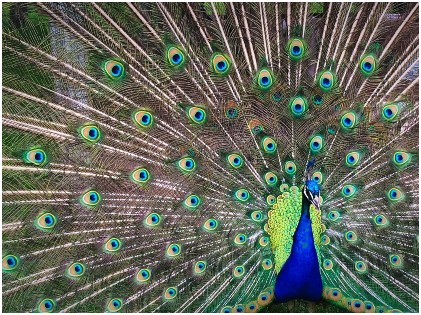Nature has tremendous healing properties. There have been countless studies that prove that nature provides fodder for the soul—feeling sad? Then take a walk around to help boost your physical and mental health. We have all heard that living near trees can help you live longer.
But what does a walk around the woods give you? Or why does it make you feel so good? Is it the sight, smell, or sounds? Well, a brand new study tells you that there is more to it than meets the eye. It is the birds that have the power of making you feel good.
The research by the California Polytechnic State University reveals how natural sounds could impact people’s well-being. In-depth studies suggest that the orchestrated singing of the birds could help the natural protected areas. You could find the published study in the Proceedings of the Royal Society B.
The Experiment
 The researchers placed ten hidden, evenly spaced speakers on the two trails in the Boulder Open Space and the Colorado Mountain Parks. They played various songs from 11 bird species, including various birds such as black-capped chickadees, American robins, and house finches.
The researchers placed ten hidden, evenly spaced speakers on the two trails in the Boulder Open Space and the Colorado Mountain Parks. They played various songs from 11 bird species, including various birds such as black-capped chickadees, American robins, and house finches.
The speakers found various realistic microhabitats for each species to make it more authentic as possible. For example, the sounds of the towhee were coming from near the usual haunt of the bird.
The researchers started playing the birdsong for several hours a day for almost a week, and then the speakers were turned off. Next, the researchers asked various hikers who passed by the speakers.
The Impact on the Hikers
 The hikers who heard the birdsong had a greater sense of well-being. This was in comparison to those who did not listen to the birdsong. Hikers who listened to the birdsong in the first trial felt better. Those who heard more bird songs in the second half of their trail felt better. Their conclusion was that those who listened to more birdsongs made them feel even better.
The hikers who heard the birdsong had a greater sense of well-being. This was in comparison to those who did not listen to the birdsong. Hikers who listened to the birdsong in the first trial felt better. Those who heard more bird songs in the second half of their trail felt better. Their conclusion was that those who listened to more birdsongs made them feel even better.
The phantom chorus demonstrated that natural sounds could greatly impact the biker’s overall experience of well-being. It is more about the sound effect that enhances the effect, that is, hearing nature. The impact of nature has multi-faceted benefits,, and it involves more layered and complex sensory modalities. This kind of harmonious noise, can help reduce the effect of anthropogenic noise pollution. This is an inexpensive way to help improve the visitor’s experiences and also benefit wildlife.
The Benefits of Nature on People
The findings can help understand more about human well-being and nature conservation. Nature offers immense benefits to people. As humans, we, are visual animals, so we often ignore the impact of the sounds. California Polytechnic biology professor, Clinton Francis, says just the exposure of 7-10 minutes to these sounds can improve the person’s well-being.
The scientists say a rising need to improve natural soundscapes in and out of the protected areas. When there is lesser noise pollution, there is a greater chance of happiness. It is easier to listen to the varied sounds of nature, such as the bird sounds.
The Change in Lifestyle
 The studies confirm what we know already about the benefits of walking around nature. But we were unsure whether it is for the sights or the sounds of both. Now, we know the chirping of birds or bird songs can have a deep-seated impact on our minds in a good way.
The studies confirm what we know already about the benefits of walking around nature. But we were unsure whether it is for the sights or the sounds of both. Now, we know the chirping of birds or bird songs can have a deep-seated impact on our minds in a good way.
Walking in nature improves your health and keep several chronic diseases at bay. It also helps improve your mental health, stress, and other diseases. Head out of the cacophony of city sounds to listen to the lilting bird sounds and improve your well being. This underrated practice of going out of the confines of your home can promise wide-ranging benefits.
If you thought that bird sounds were calming, well, you were right all along. Make time to venture out and detach yourself from your gadgets and listen to the sound of nature. As the new year has begun, use this opportunity to start life afresh. Start embracing nature and you will soon notice a great difference in your physical and mental health. Don’t forget to share the findings from this research with your friends and loved ones. Afterall, the well-being of our loved ones is all that we need!




